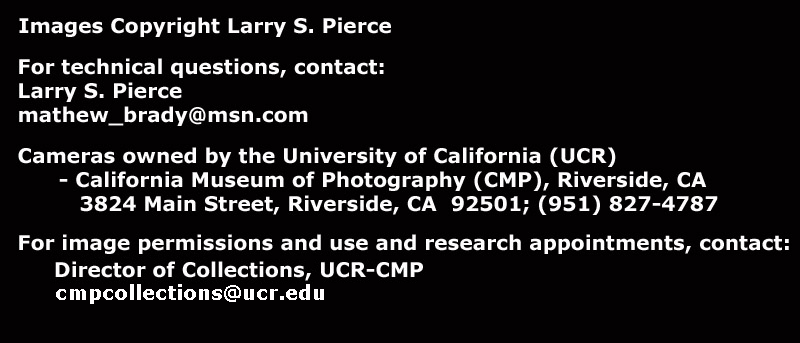American Optical Company
The Scovill & Adams Co., Prop's
Star View Camera Rear Focus
14 x
17" format, marked "The Scovill & Adams Co. New York"
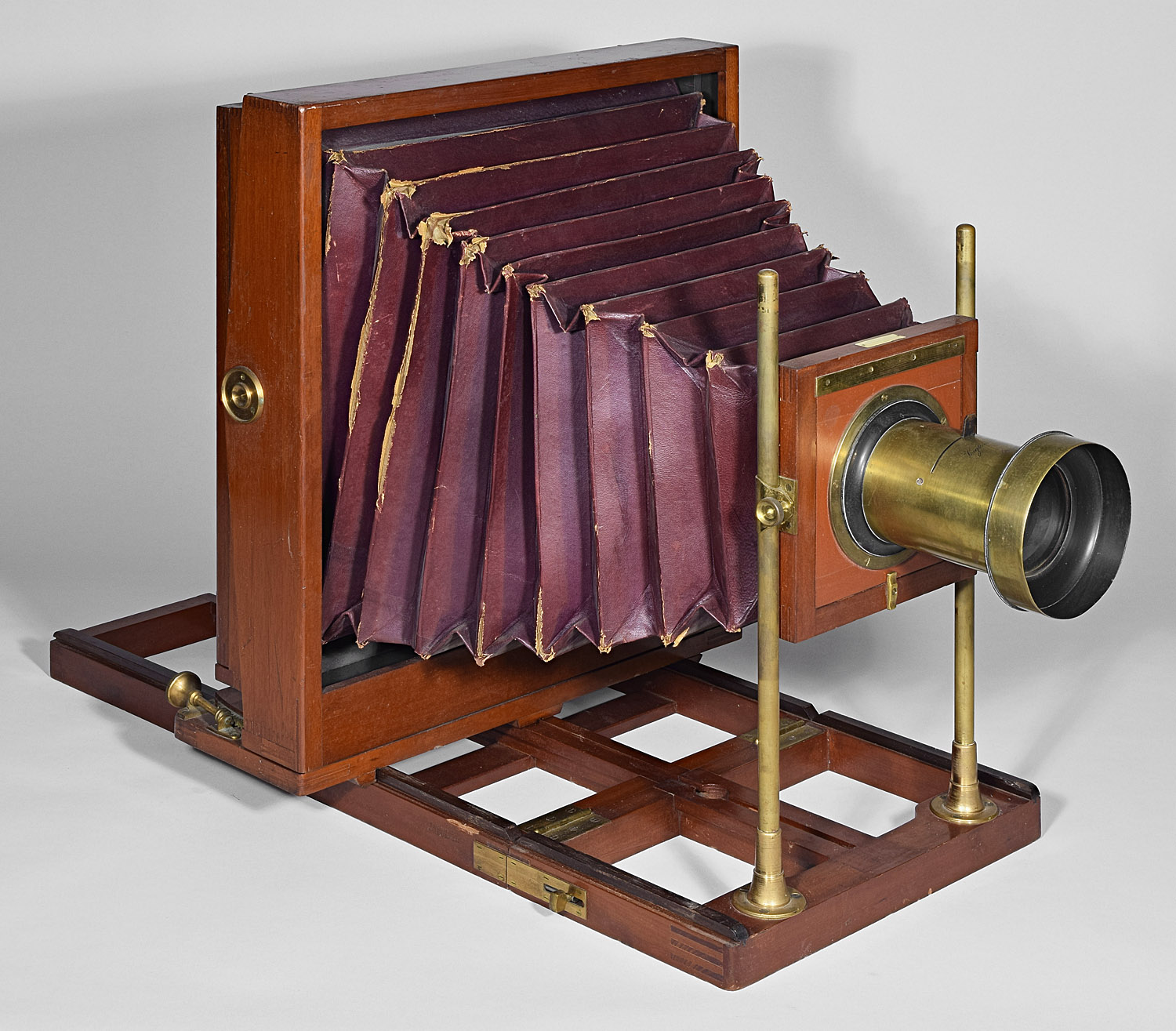
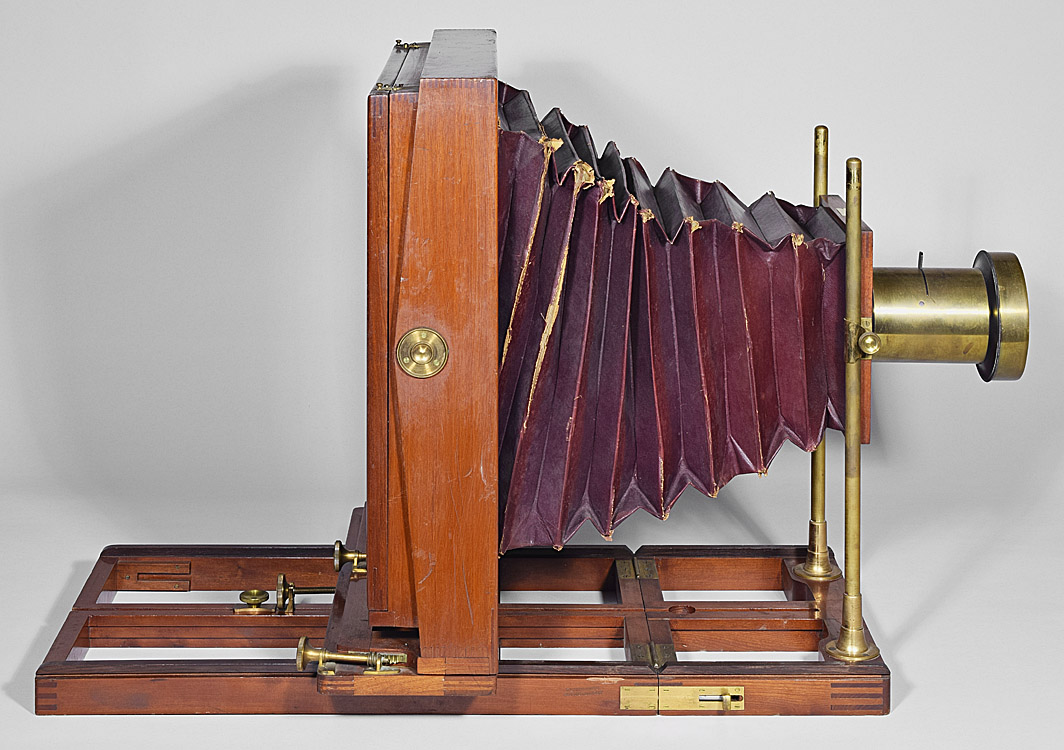
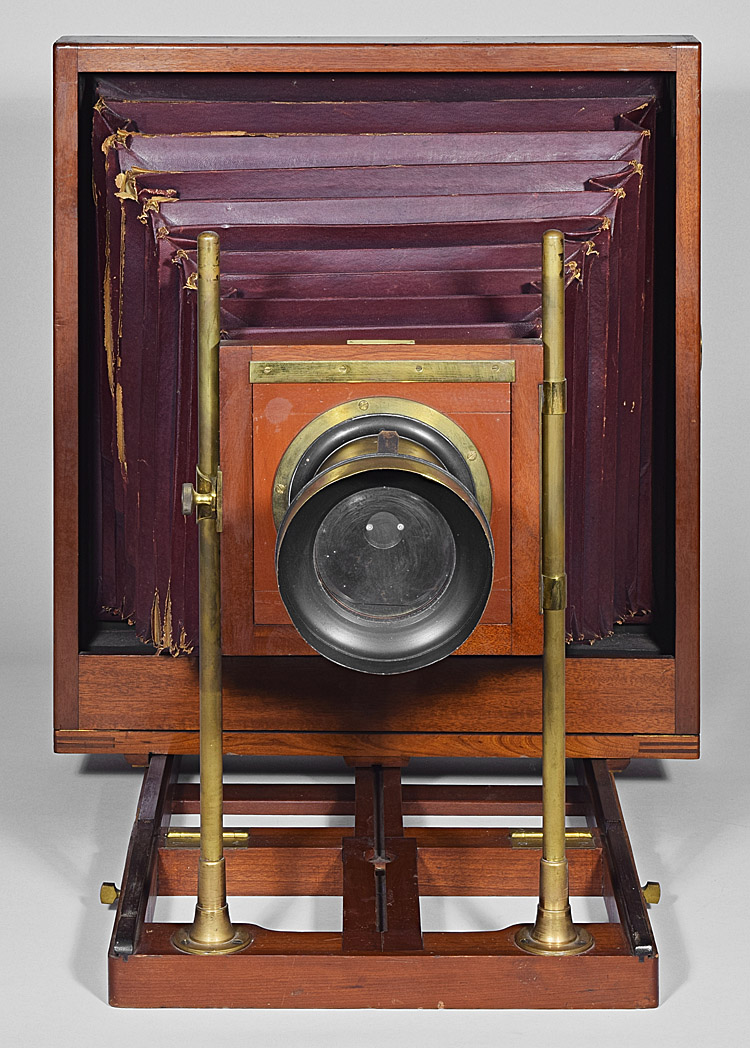
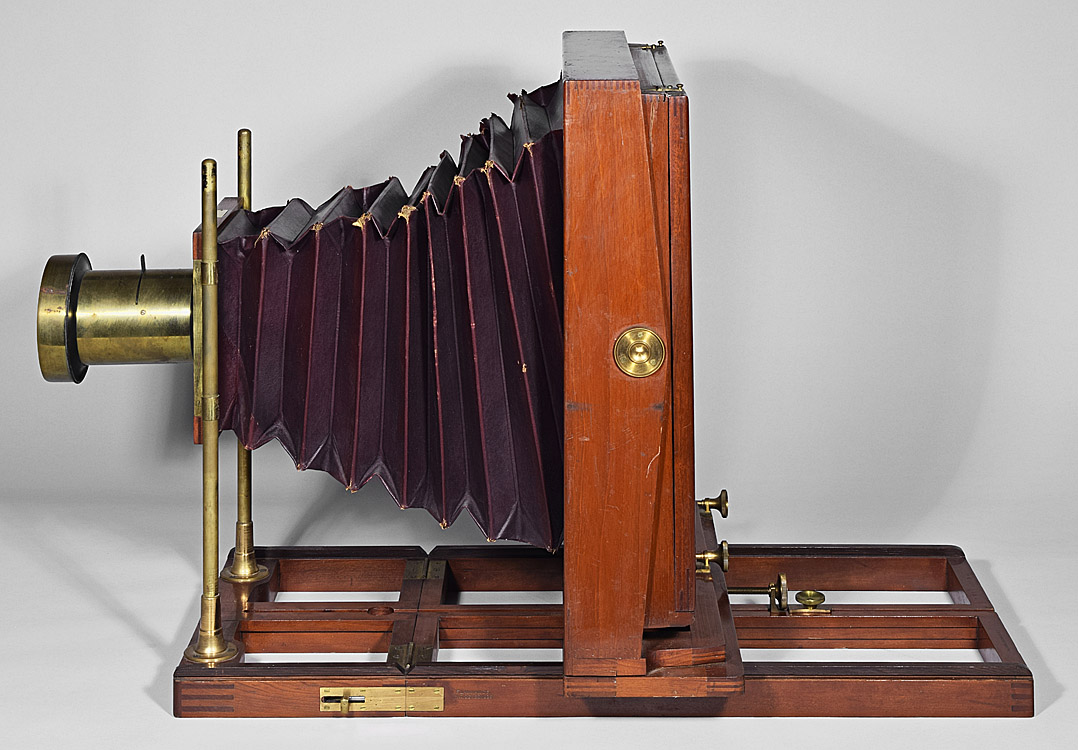
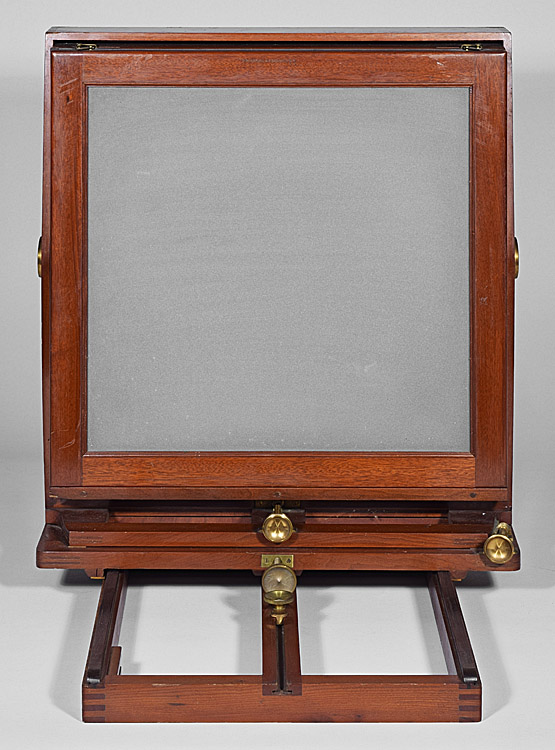
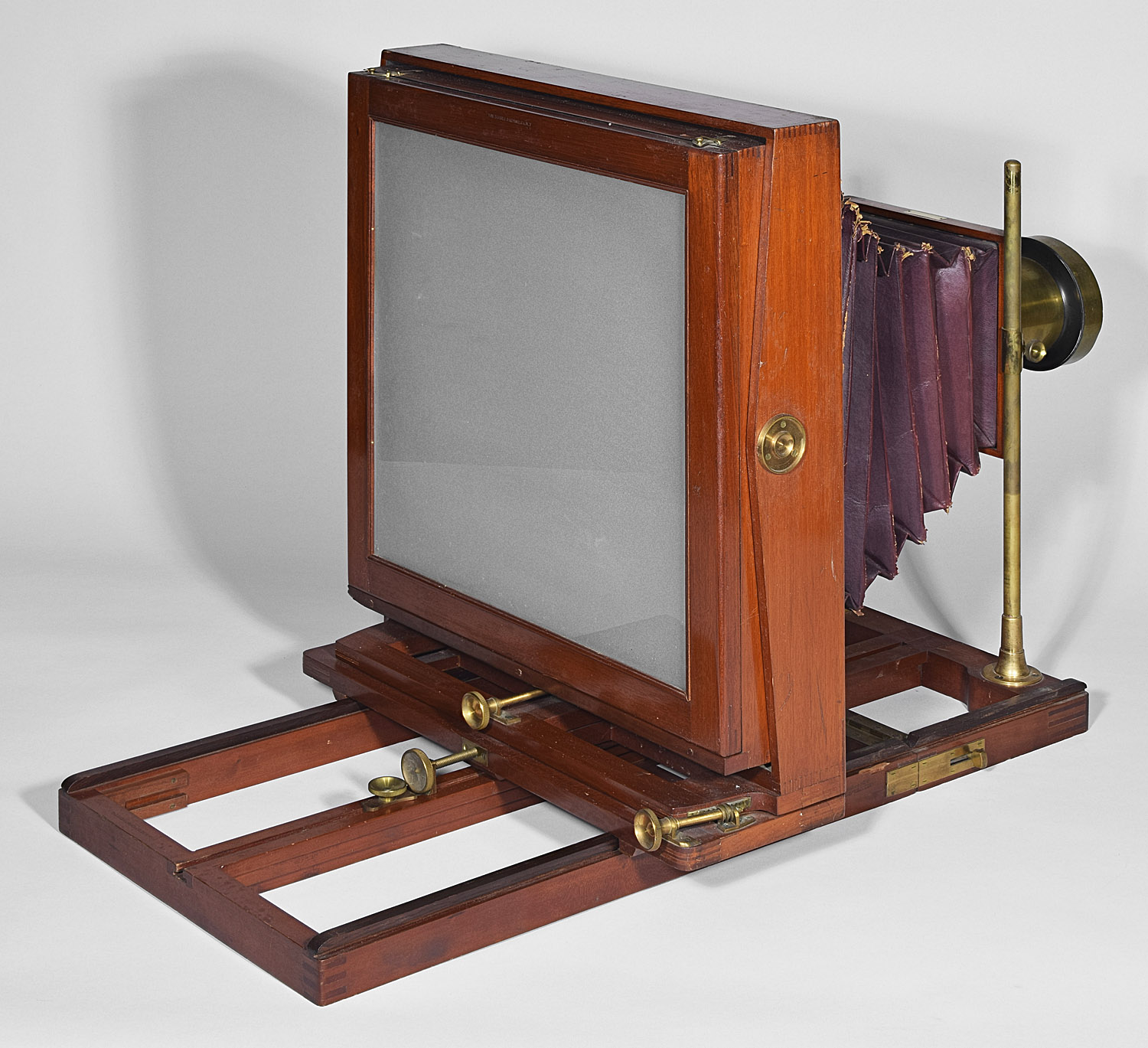
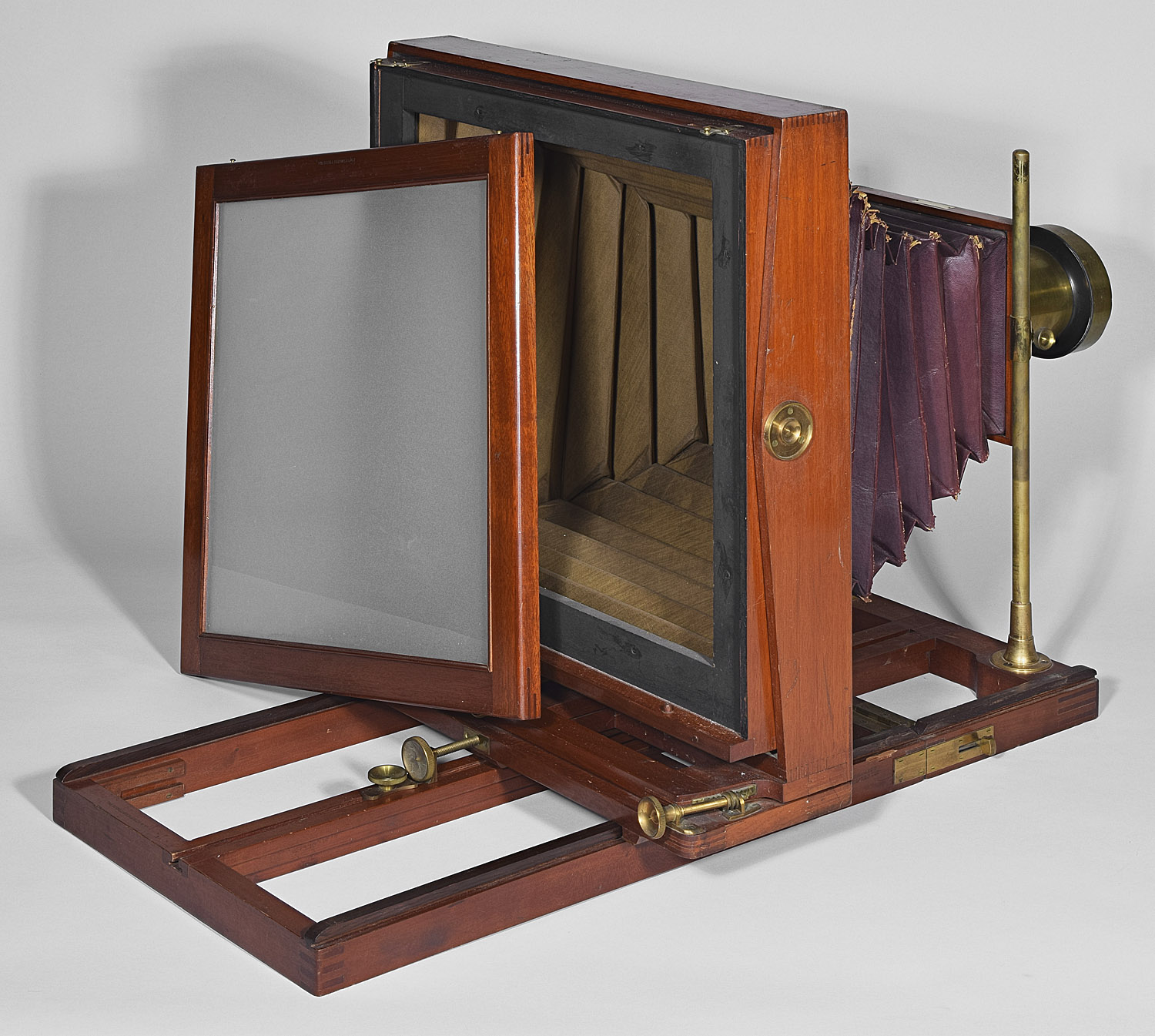
Bottom
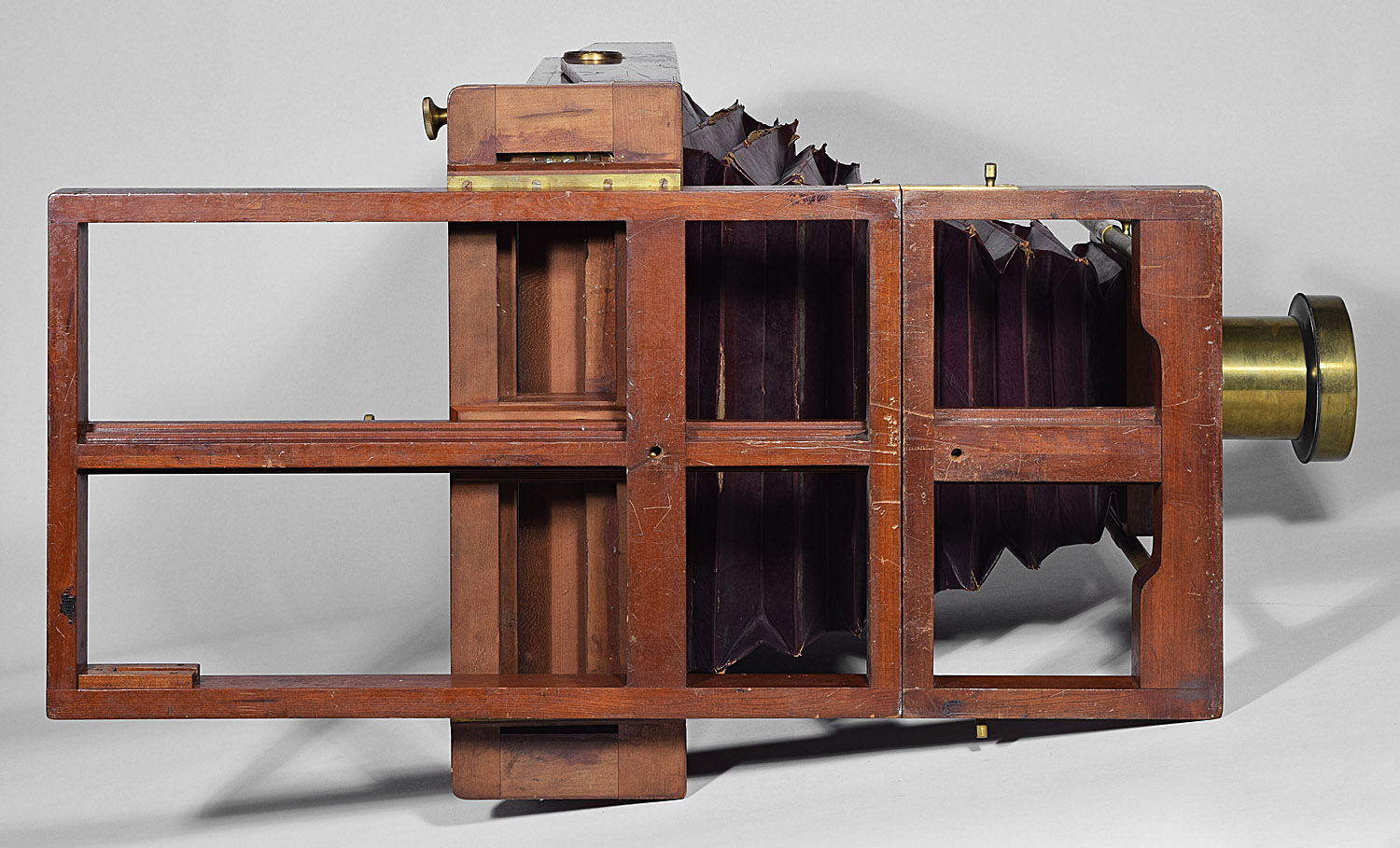
Top
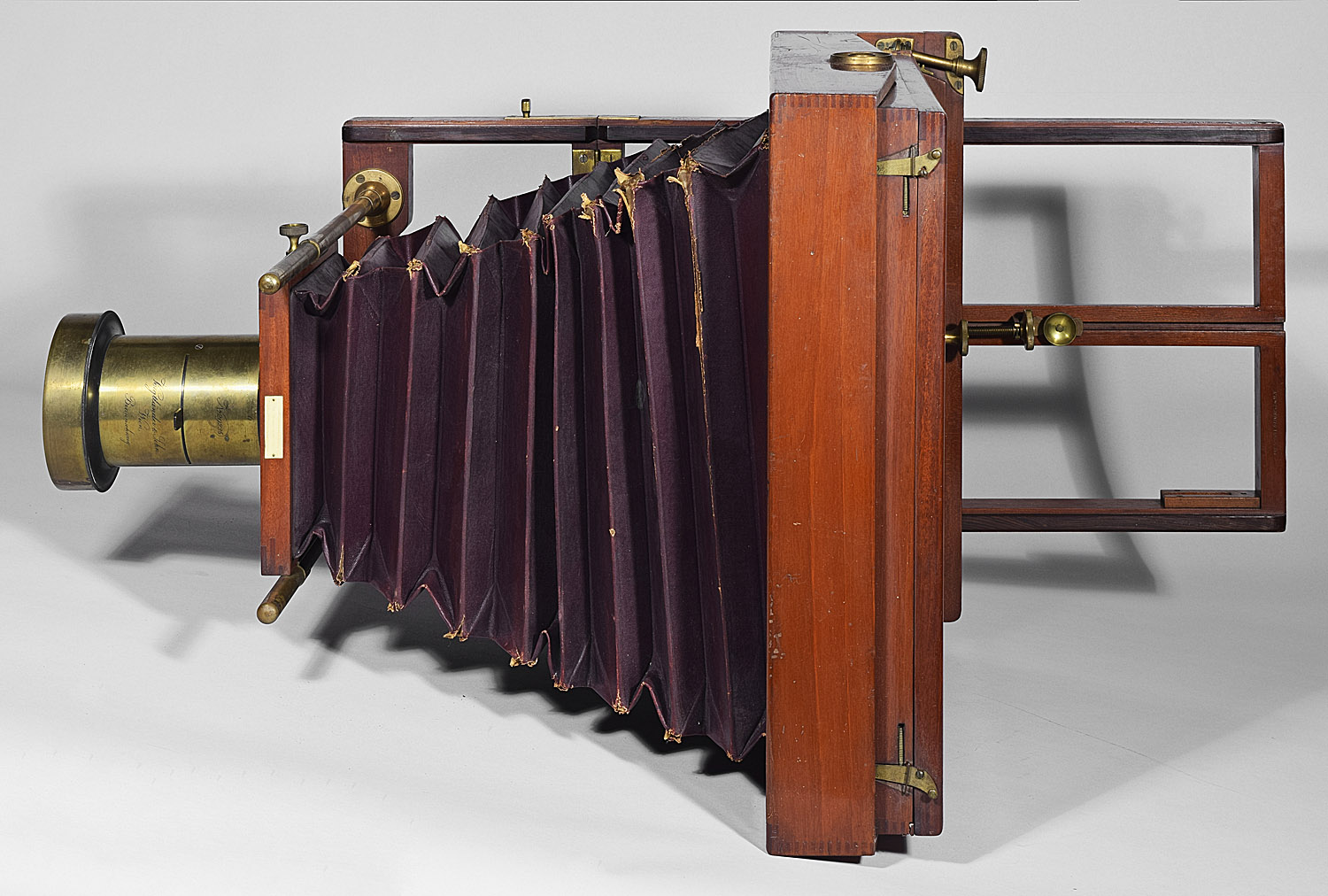
Label on Top of Front Standard: "American Optical Company / New
York / The Scovill & Adams Co."

Stamp on the Top Rear of the Platform: "The Scovill & Adams Co. N.Y."

Manufacturer:
American Optical Co. New York, NY factory A rear focus Star View Camera is never mentioned
in the Scovill & Adams catalogs. To be sure, Scovill & Adams
catalogs are much scarcer than Scovill Mfg. Co. catalogs, but the lack
of mention of such a camera may mean that it was experimental or custom. The brass rods for the front standard are 5/8" diameter. Even
though it is a folding field camera and, therefore, built to be lighter
than a studio camera, it has raised, wooden rails on which the rear
standard slides, reminiscent of raised, wooden rails on studio cameras
of the time. Likewise, the square, 17x17" ground glass frame and
matching square plate holder (if it were present) is the same as a
studio camera would have. And the locations and rack and pinion
controls for the two swings are the same as used as early as the 1860's.
It was lighter than a studio camera, but not by a whole lot, and
whenever I see one of these large format field cameras, I am always
amazed that photogrphers lugged them out in the field, probably in a
wagon. It does have two tripod mounts on the bottom - the forward
one for short lenses and the rear one for long lenses, so there were
tripods capable of holding it steady. References:
Back to American Optical
Co. / Scovill Mfg. Co. (alphabetical)
Date Introduced: - ; Years Manufactured:
c.1890-c.1896
Construction: rear focus
via push-pull;
this example is double swing; reversing by removable back; three-piece lens
board
Materials: mahogany body; cherry base;
brass hardware
Sizes Offered: The
Front Focus Star View Camera was offered
in sizes up to 11x14" format. This may be the only style of Star
made in 14x17".
Notes:
Not in the
Scovill & Adams catalogs nor in Annuals.
